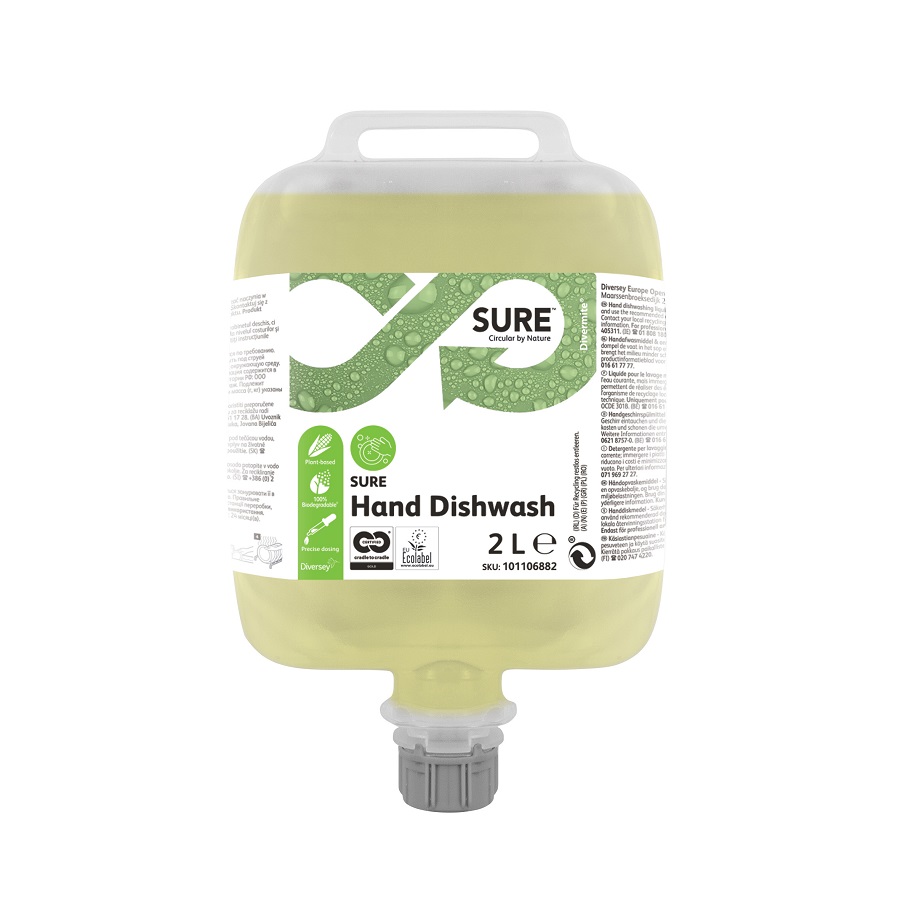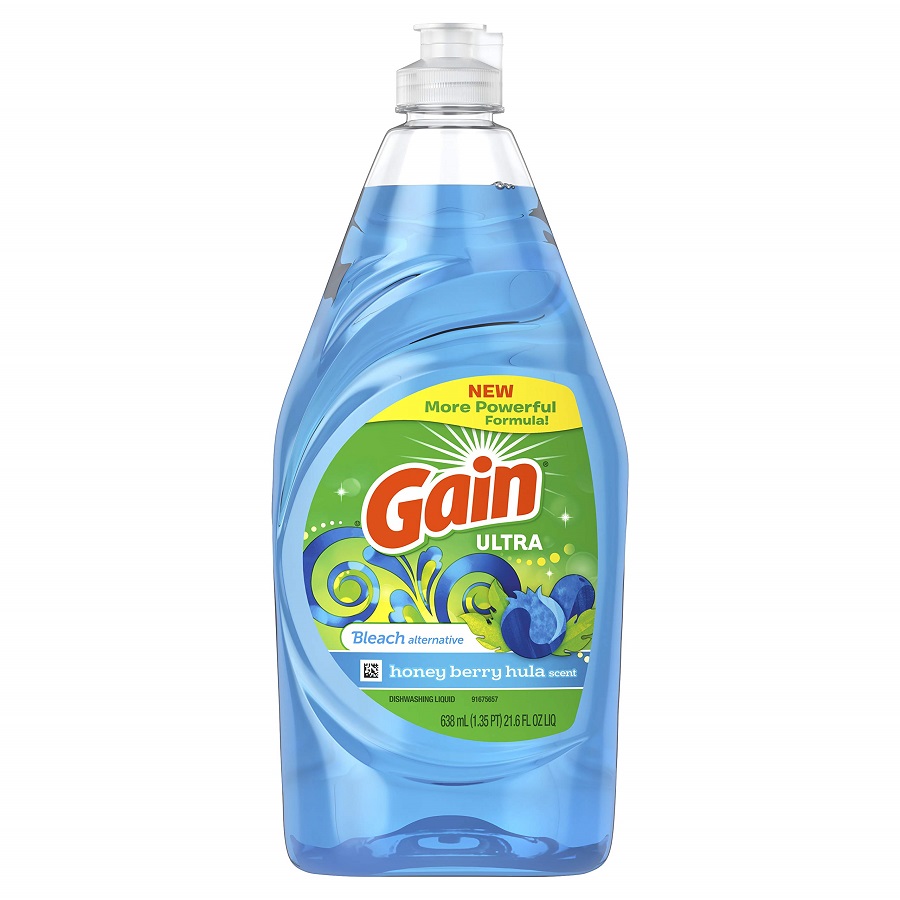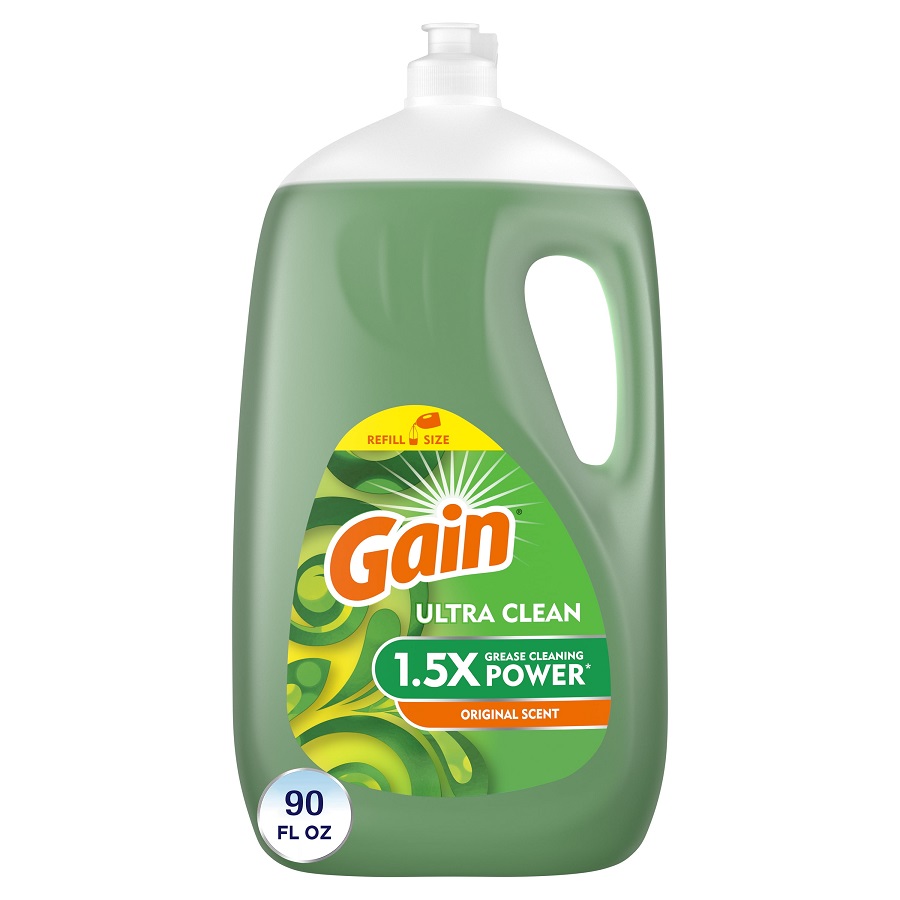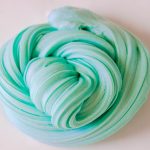Key Differences Between Dish Soap and Laundry Detergent
Understanding why dish soap does not replace laundry detergent is key.
Ingredients and Formulation
Dish soap contains strong grease-cutting surfactants, solvents, and additives. Laundry detergent has surfactants, enzymes, builders, brighteners, and fabric softeners. Enzymes target protein stains which dish soap cannot.
Intended Purposes and Cleaning Abilities
Dish soap excels at cleaning dishes, not clothes. It cuts through grease on dishes but lacks the broad stain-removing abilities needed for fabric. Laundry detergents are designed to tackle a variety of stains and odors in fabrics without damage.
Sudsing Levels and Machine Compatibility
Dish soap creates high levels of suds, unsuitable for washing machines. High suds can cause leaks or damage in machines. Laundry detergents are formulated to produce fewer suds, aligning with machine requirements and preventing suds-related issues.

The Risks of Using Dish Soap in the Washing Machine
While in a pinch, it might be tempting to use dish soap in your washing machine, the risks far outweigh the benefits. Not only can dish soap create an overflow of suds that are difficult to manage, but it can also cause significant damage that could lead to costly repairs. Here’s why you should think twice before using dish soap as an emergency laundry solution.
Potential Damage to Washing Machines
Dish soap is not designed for the low-sudsing environment of washing machines. Using it can result in an overflow of suds that can seep into the machine’s internals. This can clog the pump, cause leaks, and lead to motor or drum damage. In short, you risk ending up with a broken washer and an expensive repair bill.
Compromised Clothing Cleanliness
Dish soap may clean plates and cutlery well, but it doesn’t have the same effect on clothes. It lacks the enzymes and fabric-specific agents that make laundry detergent so effective. Clothes washed with dish soap might not get thoroughly clean, and stains or odors could remain.
Residual Build-up on Fabrics
Another risk of using dish soap is the residue it can leave on clothing. Unlike laundry detergent, dish soap does not rinse out as easily. This can leave your clothes with a film that might irritate skin or attract more dirt. Over time, this residue can make fabrics look dull and feel uncomfortable.

Emergency Use of Dish Soap in Laundry
While using dish soap for laundry is not ideal, there may be times when you have no other option. In such emergency situations, being cautious about how much dish soap you use and what for, is of utmost importance.
Hand Washing with Dish Soap
Hand washing clothing with a small amount of dish soap is feasible in a pinch. Use only a few drops to avoid excess suds and thorough rinsing is critical. It’s best for lightly soiled or delicate items where standard laundry detergent is absent.
Pre-treatment of Greasy Stains
You can apply a small dollop of dish soap directly to greasy stains as a pre-treatment. Gently rub into the fabric before washing. Remember, this should only be a temporary measure until proper laundry detergent is available.
The Importance of Choosing the Right Cleaning Agents for Laundry
Chemical Composition and Fabric Care
Choosing the right cleaning agents for laundry is crucial for fabric care. The chemical composition of laundry detergent is designed to handle different kinds of stains and soils on fabrics without causing damage. It’s tailored to maintain the quality and lifespan of your clothing. Laundry detergent contains specific components to combat certain stains – enzymes break down proteins, builders soften water for better cleaning, and brighteners improve fabric appearance.
Contrarily, dish soap possesses a different chemical makeup. It’s primarily formulated to cut through grease found on dishes and may be harsher on fabrics. Using dish soap as laundry detergent can strip away fabric softeners and potentially harm delicate threads. The harsh chemicals can lead to color fading and weakening of the material. Therefore, using products designed for laundry is essential not just for cleanliness, but also for the integrity and longevity of your clothing.
Manufacturer Recommendations for Machine Use
Manufacturers of washing machines provide clear guidelines on the types of cleaning agents to use. These recommendations exist for good reasons. They ensure the machine functions correctly, and the laundry comes out clean and undamaged. Disregarding these can result in voided warranties or damaged components due to improper use.
Laundry detergents are vetted and confirmed to be machine-friendly. They create a controlled amount of suds and rinse out without leaving harmful residues. On the other hand, the high sudsing action of dish soap can lead to a foamy overflow and damage the washing machine’s internal parts. Always consult your washing machine’s manual and follow the manufacturer’s recommendations for using cleaning agents. This practice guarantees that your clothes get clean while preserving both the garments and your appliance.

Safe Alternatives to Dish Soap for Emergency Laundry Situations
When you’re out of laundry detergent and need a quick fix, don’t resort to dish soap. Instead, consider these safe alternatives that can tide you over until your next trip to the store.
Homemade Detergent Recipes
You can easily whip up an effective laundry detergent using items likely already in your pantry. A simple recipe includes mixing one part washing soda with one part baking soda and two parts borax. Store this blend in a container. Use a tablespoon or two for each laundry load.
Using Baking Soda or Borax as Substitutes
Both baking soda and borax can individually serve as emergency laundry agents. Add half a cup of baking soda directly to the washing water to freshen and clean your clothes. Borax also works well to remove stains and neutralize odors. Use one quarter to half a cup per load. Ensure you dissolve it in water first before adding clothes.
These methods won’t harm your clothes or washing machine and can provide a temporary solution when laundry detergent is not available.
The Verdict from Cleaning and Laundry Experts
Experts strongly advise against using dish soap as laundry detergent. They highlight the different chemical properties and clear purposes of dish soap and laundry detergent. Dish soap is for dishes, while laundry detergent is for clothes.
Damage Control and Prevention Tips
To avoid damage, always use products meant for laundry. Check washing machine manuals for recommended detergents. In emergencies, use a tiny amount of dish soap, but never make it a habit. Always follow with thorough rinsing.
The Long-term Consequences on Clothes and Machines
Using dish soap in washing machines can lead to costly repairs or replacement. Over time, dish soap can ruin clothes, leaving them dull and shortening their lifespan. Stick to proper laundry products to keep clothes and machines in good condition.
Frequently Asked Questions About Laundry Care
Navigating laundry care can be tricky, so let’s tackle some common questions.
Handling Soap Suds and Residues
Can you use dish soap as laundry detergent? You might face a suds overload. Here’s how to handle it:
- If suds overflow, stop the machine, and scoop out foam.
- Run a rinse cycle to clear out suds and soap.
- For residues on clothes, rinse them under warm water.
- Do spot tests if you doubt a fabric’s reaction.
Best Practices for Stain Removal
Removing stains efficiently requires the right technique. Follow these tips:
- Attack stains quickly; the longer they sit, the harder they are to remove.
- Use the correct stain remover for each type of stain.
- Follow garment care labels closely for temperature and treatment.
- Blot, don’t rub, to prevent the stain from spreading.
- Wash after treatment to remove any leftover stain remover.
Remember, preventive care is better than a cure. Use appropriate laundry detergents to reduce risks and keep your fabrics fresh and clean.


